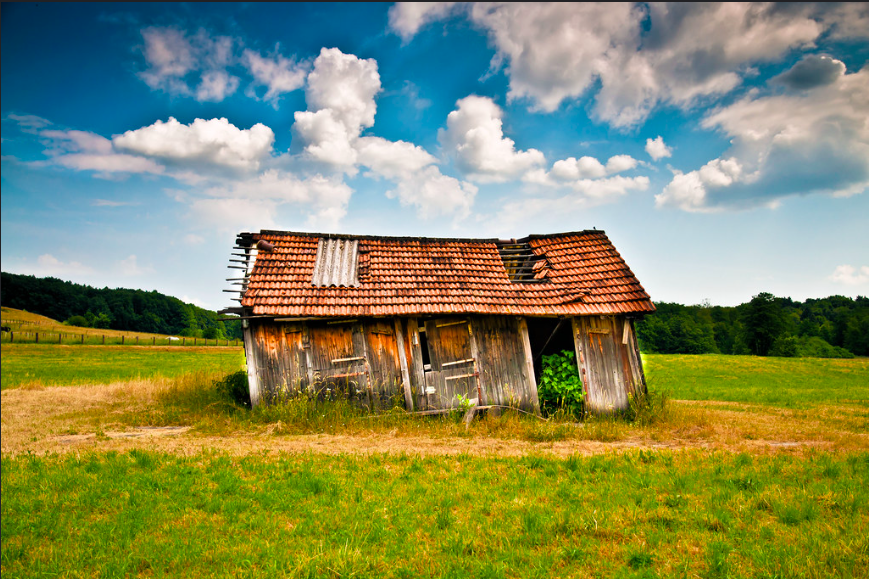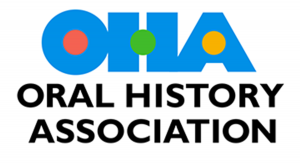Author Interview: Malin Thor Tureby on Crisis Documentation
In our upcoming issue of OHR (49.2), Malin Thor Tureby and Kristin Wagrell discuss crisis documentation methods and the impact of digital and social media in their article, “Crisis Documentation and Oral History: Problematizing Collecting and Preserving Practices in a Digital World.” Here Tureby answers our questions about the Swedish context for oral history and ways to approach documentation using oral history in the midst of crisis.
Q: At the beginning of the article, you state that Sweden is a country that lacks a track record of professional oral history. Has the needle moved at all to where professional oral history is increasing its prescience there? If so, how? What could other countries in a similar predicament learn from Sweden’s experience?
The long absence of professional oral history as practice in Sweden has meant that other professions, disciplines, and institutions have come to define the collection, archiving, and use of recorded and archived personal memories and life stories in research and public history. In contrast to researchers in countries like the UK, where scholars perceived oral history practices as groundbreaking in the 1970s, Swedish ethnologists had an already established tradition of collecting objects and stories of everyday life. Thus, the opinion was that the perspectives potentially provided by oral history had already been covered. However, one could also argue that historians from the research field of labour history began to use interviews in the 1970’s. Few of these otherwise very interesting and relevant studies, does not however include any theoretical or methodological discussions of oral history, except for discussing the oral sources in relation to classical source criticism. A common denominator for these books and dissertations on work, work processes and workplaces are that many of them have had an emancipatory aspiration and a history from below-approach. The emancipatory power of oral history is thus emphasized, but not problematized or theorized. The epistemological and methodical debates that took place internationally on oral history during the 1970s and onwards is thus lacking in the historical field in Sweden at the same time. Yet, when the international organization The International Oral History Association (IOHA) was founded in 1996, it was founded in Gothenburg, Sweden. It was not an historian but an ethnologist, Birgitta Skarin, that was elected as a representative of Europe in the Council of the International Oral History Association (IOHA).
I also think that this is something that is distinctive for the history of professional oral history in Sweden. There have been very little dialogues between scholars from different disciplines practicing oral history or other kinds of ethnographic fieldwork. This was something that we wanted change when we in 2012 we got funding to establish what would become Oral History in Sweden (OHIS). The purpose with OHIS was to try to create a platform for researchers with different backgrounds, inputs to and experiences of working with oral history. The purpose with OHIS was to unite, gather and learn from each other from different generations of scholars and from different disciplines.
At the same time, in an international context, oral history is often associated with public history. This willingness to engage with oral history in a public context differs from how it has been dealt with by Swedish scholars who have been more focused on “history from below” or ethnology/folklore studies. Oral history research in a Nordic context has in the past primarily been conducted by academics for the purpose of a specific research project, and thus community projects and archives have not been very common. In Sweden as well as in other Nordic countries, participatory practices are now debated, and interviews are currently carried out at a large scale by state-sponsored commissions tasked to document past injustices against minority groups and oral history also plays an important part in the creation of new museums like the newly established Swedish Holocaust Museum. Still, I would I argue that we still cannot claim that oral history is a research field in Sweden. Although we have been trying to create different platforms for promoting dialogues between researchers from different disciplines. An identity as oral historian or a research field of oral history does not exist in Sweden although researchers and scholars from different disciplines are working with oral history and theories and practices for example shared/sharing authority. I don’t know what other countries can learn from the Swedish experience. For me oral history is all about learning together. During the Congress for Nordic Historians that took place in August 2022 oral historians from Sweden, Finland and Norway organized a roundtable together to discuss and understand the past, present and future of oral history in the Nordic countries. Together we started to explore what theoretical and methodological developments we can see in the field of oral history in the Nordic Countries? What are the major trends and how has our understanding and practice of oral history changed/not changed over time and space? What similarities and differences are there between the history and practice of oral history in the Nordic countries? I am very much looking forward to continuing our discussions and to explore these questions with my colleagues and fellow oral historians from the other Nordic countries to find out ways for how we in the future can cooperate and learn from each other.
Q: Tell our readers about crisis collecting. What is it and what are its challenges?
Crisis collecting, documenting in times of crisis or Rapid Response collecting or whatever you would like to call it is when institutions or individuals are taking an opportunity to record and document what they believe is a historic situation as they happen. In the museum-sector it is today called Rapid Response Collecting. I would argue, however, that this is not a new practice. People has always documented in times of crisis or. For example, during the Holocaust many individuals and groups, as for example the Oneg Shabbat group, started to record and document, by doing interviews, drawings, life stories etc., what was going on in order so that someone in the future could write their history. They were documenting their own experiences and trauma and with the knowledge that they would most probably not survive. They did this by interviewing people and by documenting everyday life in the ghetto. The Oneg Shabbat Archives, and other similar initiatives and groups during the Holocaust, is one example of how important oral history work (although not called oral history at the time) has been done in times of war, crisis and catastrophe and also that “crisis documentation” has its own history and historiographies. Today we more often think about crisis collection as archivists, oral historians or heritage organizations’ response to crisis.
I believe the challenges for crisis collection is in many ways different ethical dilemmas. Questions that we need to ask ourselves as oral historians, archivists or heritage workers are if people really want us document them during times of crisis? And if so, how would they like to be documented, recorded, and represented? As professional historians we think it is important to collect, record and create sources for future historians to work with. But do all people really want their personal or collective experience and/or trauma to be “collected” by an archivist or oral historian and transformed into a source or a story in the archive or museum? Maybe some people prefer to document and interpret on their own terms before they are ready to share their experience with the archivist or oral historian? In a Swedish/Nordic context we really need to discuss and produce Ethical guidelines and “bets-practices” for crisis collecting and archiving.
Q: What would you say are effective ways for historians to make the right choices on what to collect and record while working in a realm of urgency to document a crisis?
I do not believe that there is an effective way to make the right choices on what to collect and record. What is important is to document and reflect during and immediately after the collecting: how and why the choices to collect and from whom and how to collect certain stories was made to explain for future historians why certain choices was made and how this shaped the form of the interviews and the collection. An important question to ask is: for whom is it urgent to document a crisis and why?
Q: In the article, you highlight several projects that take very different approaches. Which approach would you say translates best across most forms of archiving oral history? Which approach do you see evolving?
Again, I do not think there is one way or forms of archiving oral history that translates best. The most important thing is to always practice transparency and to document and explain how and why the interviews were created and the collection designed and archived in a certain way.
Q: How do you see oral history and its practices continuing to evolve in the digital age?
This is a huge and difficult question. Digitization is often framed as a process or tool for democratization that guarantees and broadens access to and inclusion in culture, history, heritage, and education. Governmental initiatives in the Nordic countries have all underscored how digitalization can nurture cohesion in society. Diversifying and democratizing cultural heritage and history through digital measures is, however, a complex and intricate process that is dependent on digital infrastructures, the development of professional proficiencies, and a deeper understanding of the non-digitized archives and their creators. Compared to many other countries, digital-born life stories or the digitization of personal memories and oral history from so-called vulnerable groups such as for example ethnic minorities or migrants, in Nordic cultural institutions and online archives is limited, because all the Nordic countries have strict personal data acts. One important topic for oral historians is therefor to identify and explore some of the current contradictions and complexities that have arisen in the gaps between the previous practices of oral history research, new legislation on ethics, and the more recent public policy developments on digitization, open access, democratization, and accessibility.
Malin Thor Tureby is Professor of History at Malmö University in Sweden. Her currently research interests lie in the history of survivor activism, Jewish women’s history, and the archival and digital practices of cultural heritage institutions. She is presently the PI for the Swedish Research team in the consortium Digital Heritage in Cultural Conflicts (DigiCONFLICT) funded by JPICH & the Swedish National Heritage Board and the PI/PL for the research projects Narratives as Cultural Heritage and Jewish and Woman, both funded by The Swedish Research Council.
Featured image from Flickr user Aremac used with CC BY 2.0.


